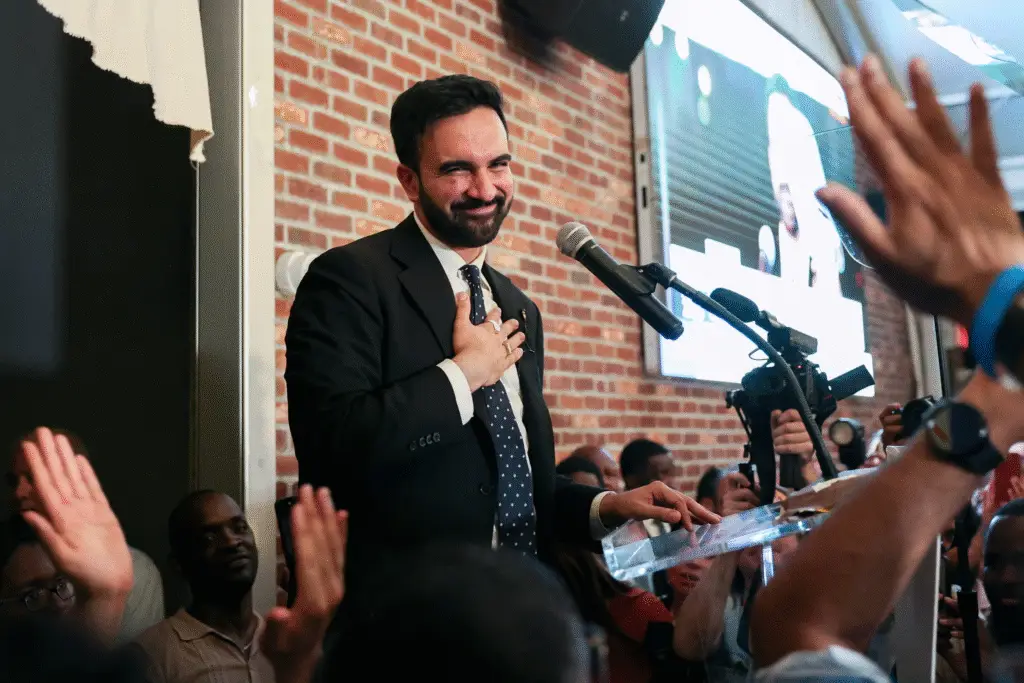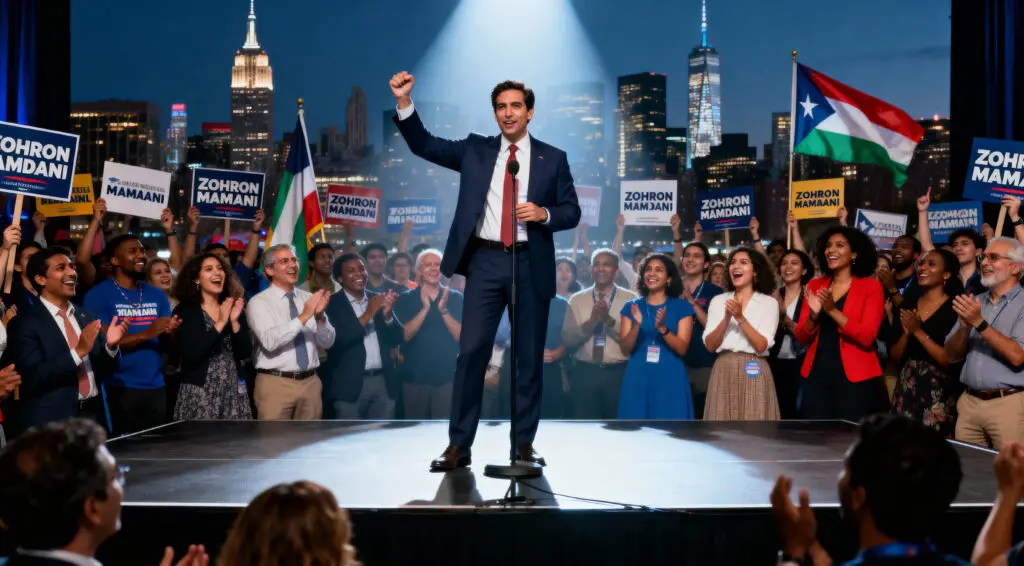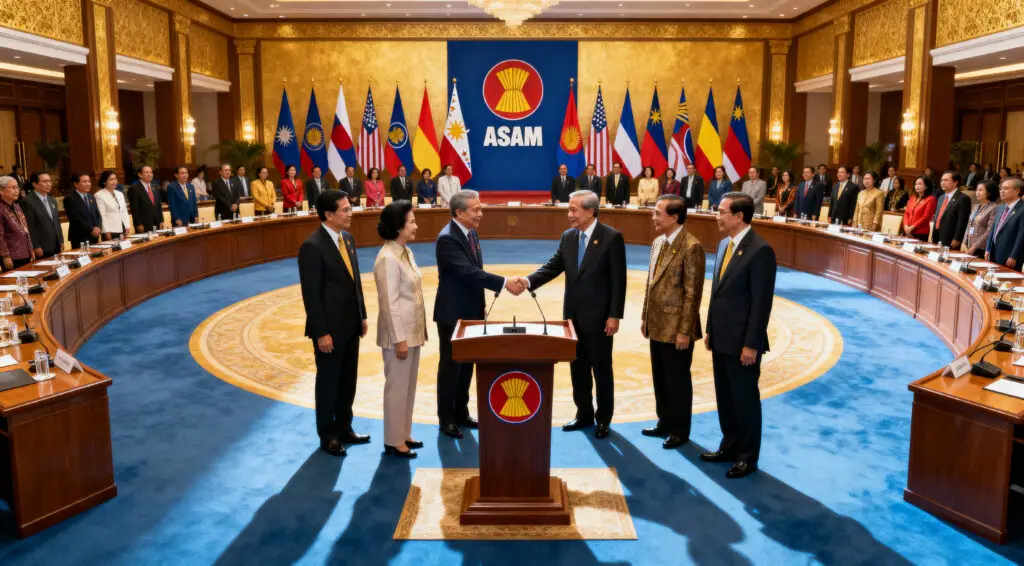Victory for Zohran Mamdani Changes Identity Politics
The election of Zohran Mamdani as New York’s new mayor has ignited a nationwide conversation about how identity politics affect elections today. His win shows that being open about your own past, rather than hiding it, may help you connect with people on a deeper level.
Critics have often used the phrase “identity politics” to make fun of it, but Mamdani’s campaign provided a different vision: a kind of politics based on shared experience, economic justice, and community strength, not separation.

Turning Identity Into a Source of Unity
People have long thought that identity politics is more about differences than togetherness. Mamdani’s approach, on the other hand, brought back its original meaning, which was based on the Combahee River Collective’s 1977 vision that liberation required recognizing how multiple systems of oppression intersect and must be taken down jointly.
Mamdani’s campaign showed this idea by bringing together different groups via their shared economic problems. He underlined how race, class, and opportunity intertwine, portraying his plans as solutions that help everyone with affordable housing, rent freezes, free transportation, and universal daycare.
Speaking the Language of the People
Mamdani ran a campaign that showed how different languages and cultures are in New York City. He made promotional films in Urdu, Hindi, Spanish, and Arabic, all of which stressed how important it is to be inclusive and affordable. He once quipped in an Arabic message that his most controversial view was that “knafeh tastes better on Steinway Street than in New Jersey.”
Mamdani was able to connect with voters from all walks of life because of this mix of humor and ethnic authenticity. He used the Arabic term “ana minkum wa alaikum,” which means “I am of you and for you,” to remind New Yorkers that politics can still be personal and welcoming.
Recommended Article: Zohran Mamdani Urged to Confront FIFA’s World Cup Power
Campaigning in the Margins, Not From Above
Mamdani didn’t try to win over elites or party insiders. Instead, he campaigned on the streets, going to taxi ranks, bodegas, and late-night jobs. His message was the same as his approach: New York is ruled by working people, many of whom are not represented in politics.
In his winning speech, he said, “No longer will I live in the shadows.” This showed both his own path as a Muslim candidate battling Islamophobia and the yearning of marginalized people to be recognized and heard.
Building Coalitions Through Shared Struggles
Mamdani’s success comes from how he turned differences into unity. His alliance encompassed people from all walks of life, from immigrant laborers to middle-class parents, who were all facing the same economic problems. He calmly told the heckler at an event, “I want you to be able to afford this city too, my brother.”
That one simple sentence summed up his political beliefs: bringing people together with understanding and a common goal instead of fighting or being defensive.
From Margins to Majority: A New Model of Leadership
Mamdani’s campaign shows that real representation doesn’t have to mean fitting in. Instead, it might imply exposing one’s identity in the open to get others who have been neglected for a long time to act. His politics doesn’t support stories of being a victim; instead, it focuses on community justice and the idea of “escaping the margins together.”
Mamdani’s campaign was able to attract individuals from all walks of life because he focused on changing the economic system instead of specific groups of people.
A Lesson for Progressives Everywhere
Mamdani’s win may have been boosted by New York’s unique demographics, but it has implications that go beyond the city. It shows how a campaign based on unity and common humanity can beat skepticism and give people hope.
Mamdani’s achievement is ironic since it represents the old “melting pot” ideal of America: different groups of people working together to achieve fairness and dignity. His win demonstrates that identity politics, when practiced properly, can be a cause for unification rather than division, indicating that politicians who are truly “of the people and for the people” still resonate most strongly.























